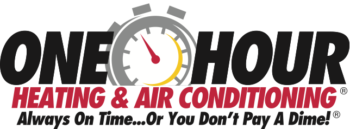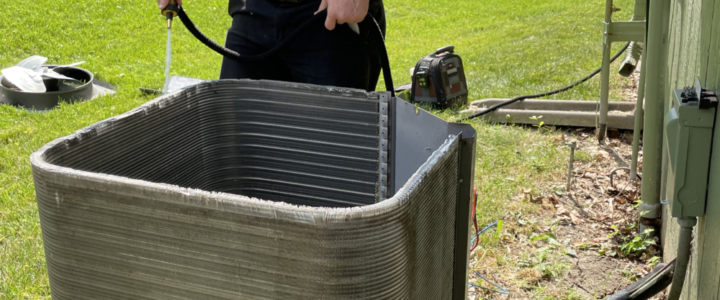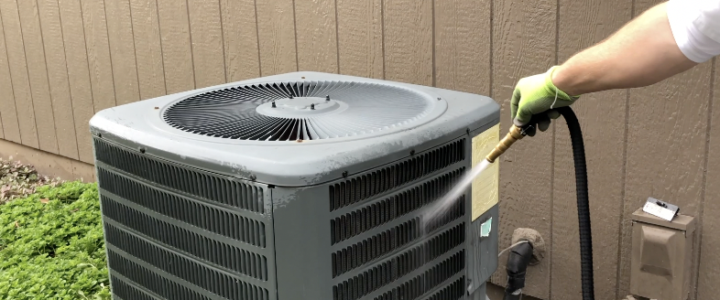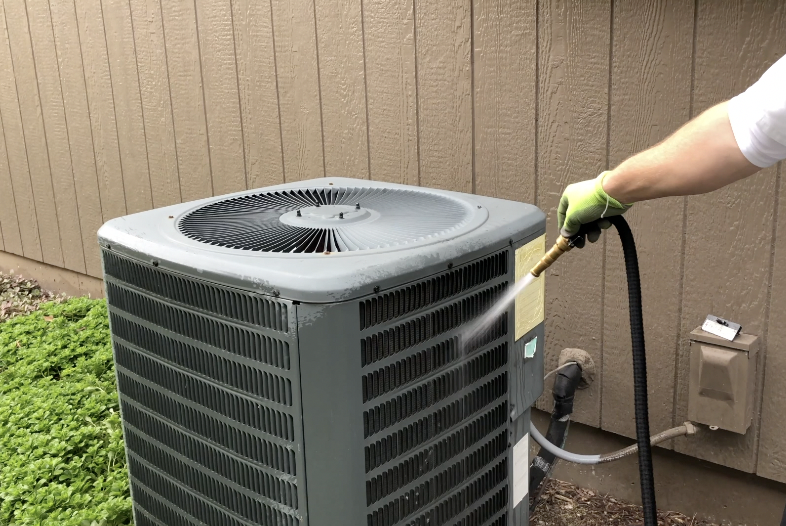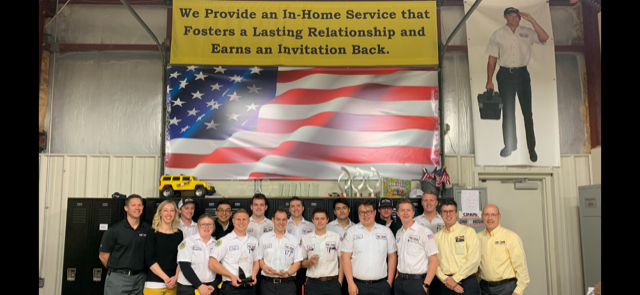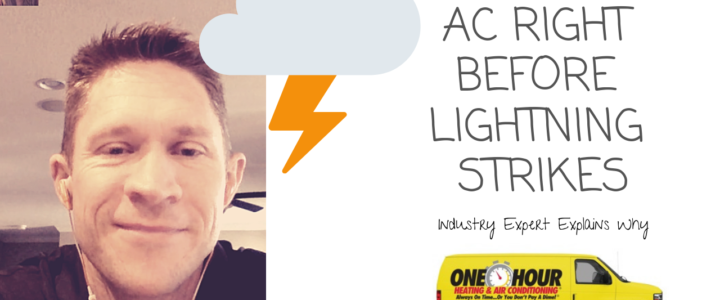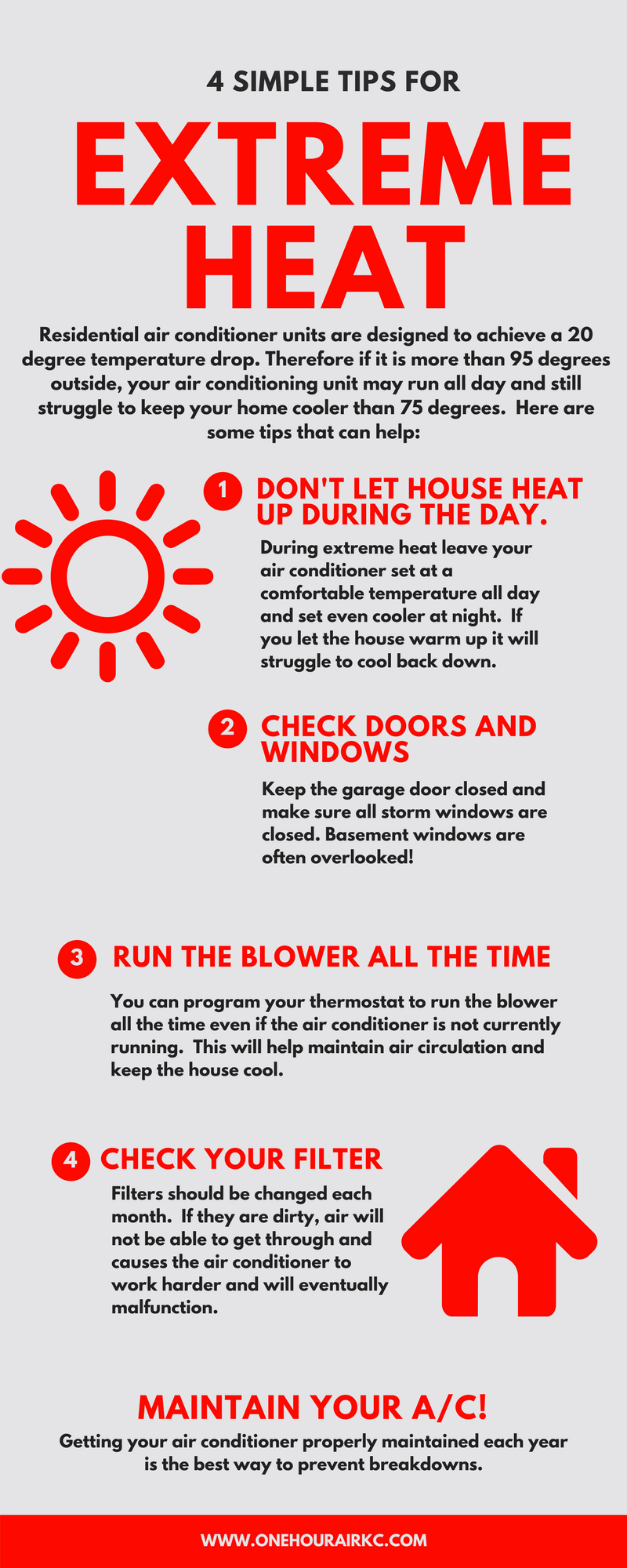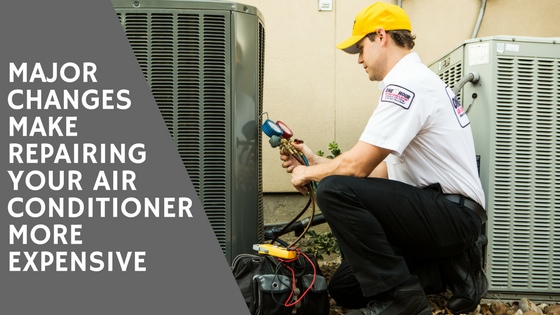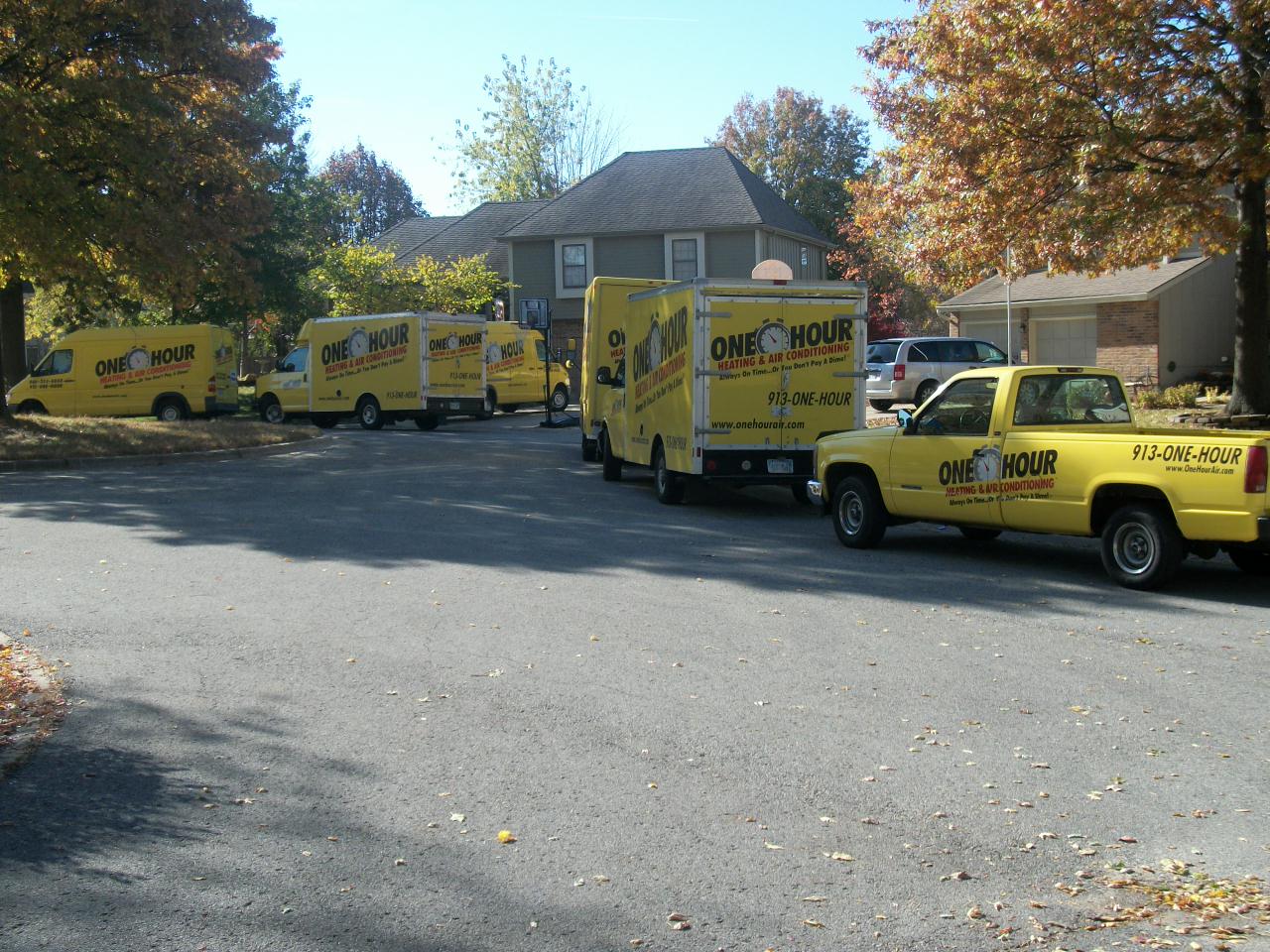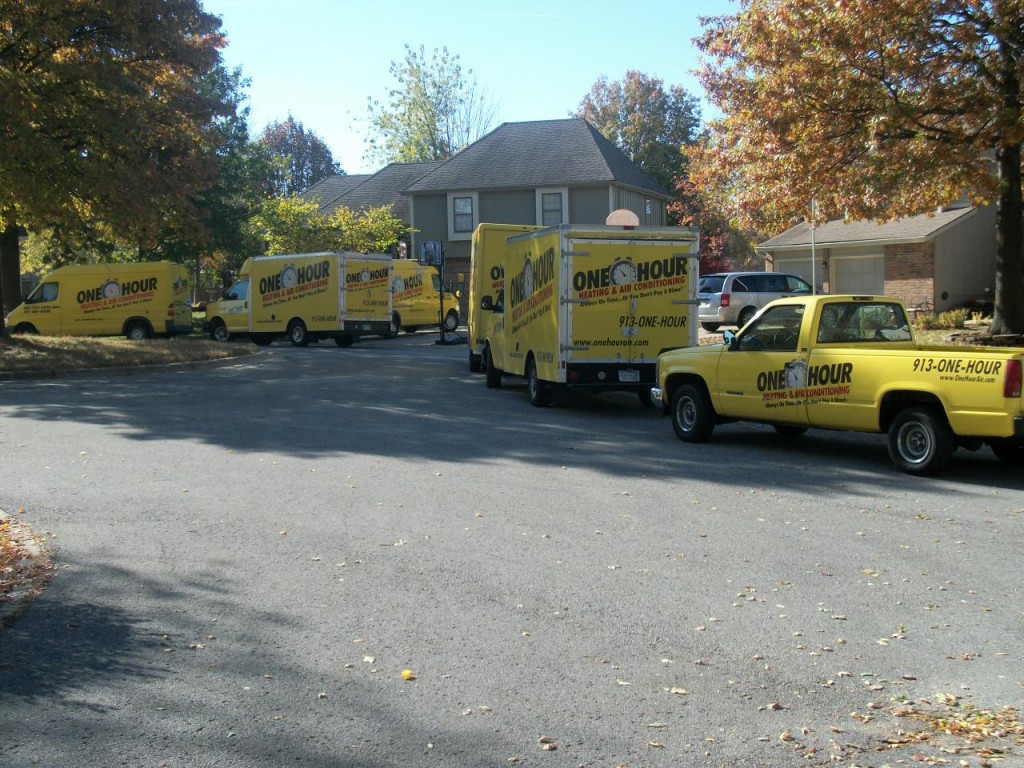Regular maintenance for your air conditioner is the most important thing an Olathe homeowner can do to ensure your air conditioner doesn’t stop working. Here are some key maintenance tasks:
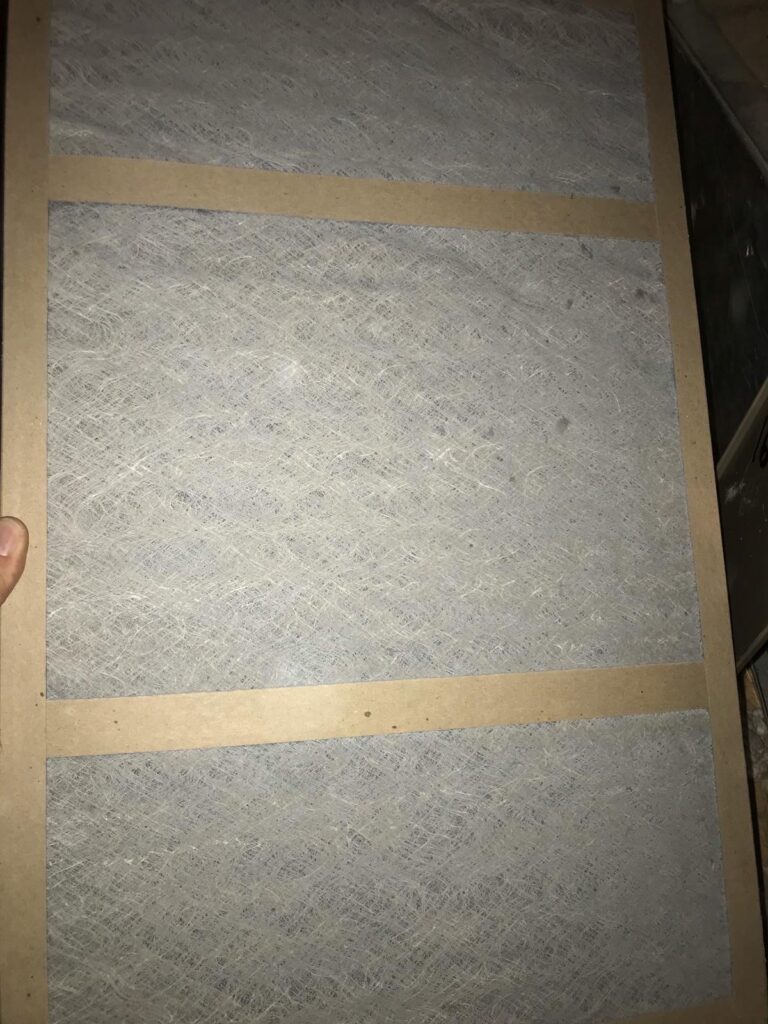
Clean or replace air filters:
Clogged or dirty air filters restrict airflow and reduces the efficiency of your air conditioner. Clean or replace them regularly, typically every 1-3 months. If you have a pet, you’ll want to change your furnace filter more often.
Also, dirty furnace filter can also cause the air conditioner or coil to freeze up and stop working.
Most air filter have an arrow on the outer edge. To install the filter correctly, the arrow always points toward the furnace.
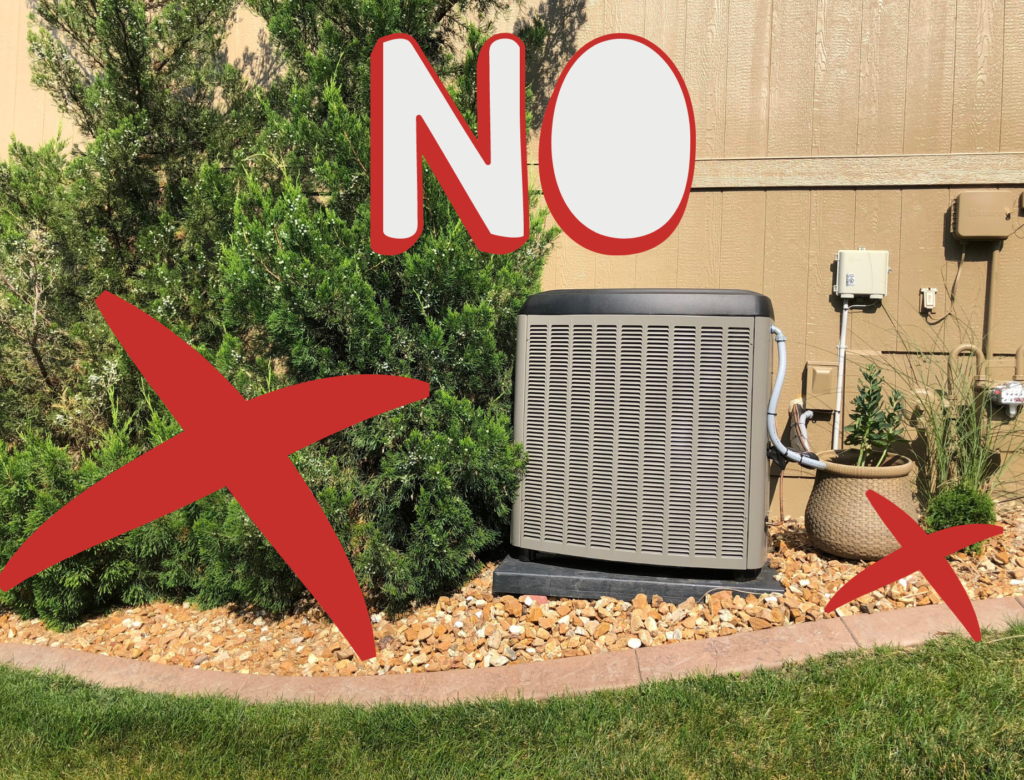
Clear debris around the outdoor unit
Ensure that the outdoor unit is free from leaves, grass, dirt, and other debris. Adequate airflow is essential for the proper functioning of the system. We recommend trimming back bushes and trees at least 6-8 feet.
Check and clean the condenser coils
Over time, the condenser coils can accumulate dust and debris, reducing their efficiency. Clean them every year or as needed to ensure optimal heat transfer. That warm air you feel coming off the top of your air conditioning unit is all the hot air from inside your home! It needs space to get rid of all that heat!
For a brief explanation of how to check if your condenser coil is dirty, view this video.
Keep the area around vents clear
Make sure your furniture, curtains, or other objects do not obstruct the vents. Obstructions can disrupt airflow and affect the cooling performance.
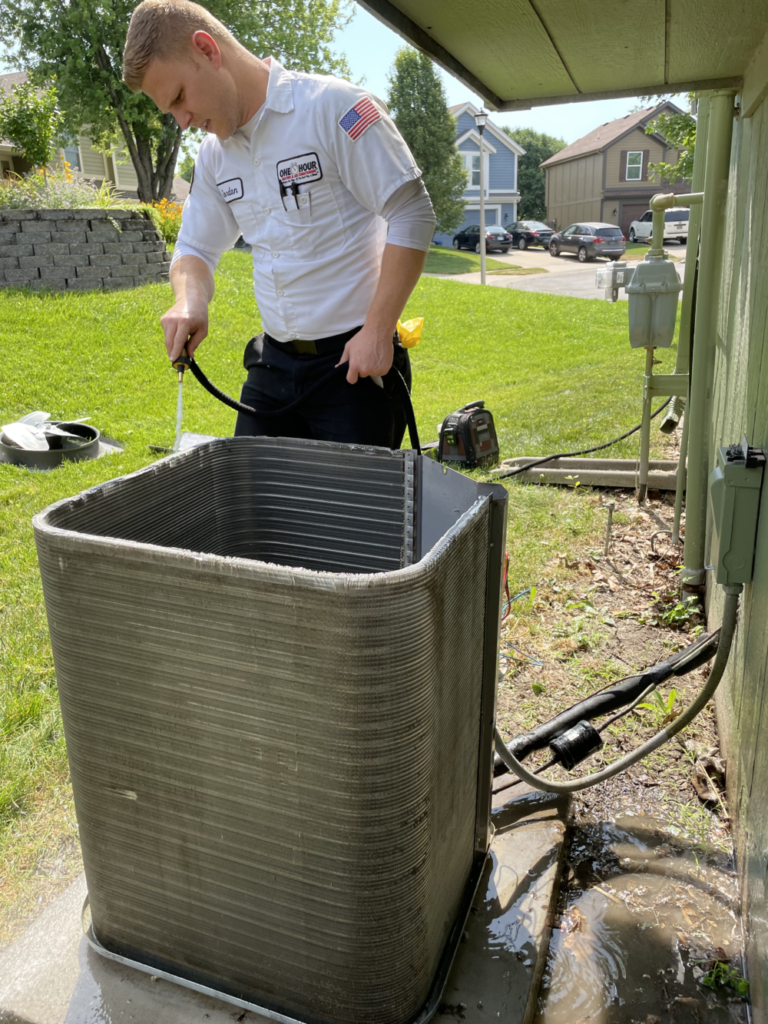
Schedule professional residential HVAC maintenance with One Hour Heating and Air Conditioning
Consider hiring a One Hour Heating and Air Conditioning Technician to inspect and service your air conditioner. They can identify potential issues, clean the system thoroughly, and perform any necessary repairs or adjustments.
Monitor refrigerant levels
With routine air conditioner maintenance, the One Hour Heating and Air Conditioning Technician monitors refrigerant levels. Low refrigerant levels can indicate a leak or other issues. If you notice a decline in cooling performance that could be a sign that the refrigerant level has dropped or there may be a leak that needs to be repaired.
If you encounter any significant issues or suspect a malfunction, it’s best to contact a qualified One Hour Heating and Air Conditioning HVAC professional in Olathe for proper diagnosis and repair of your air conditioner.
